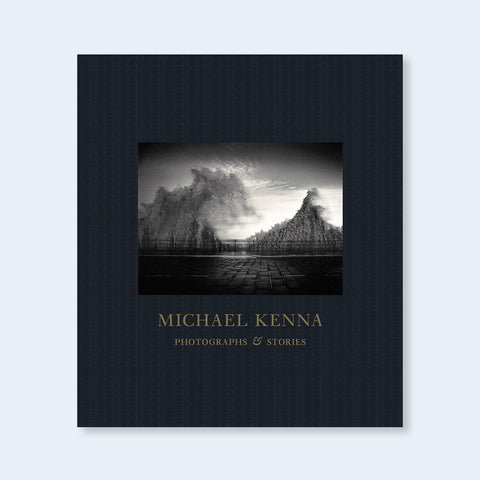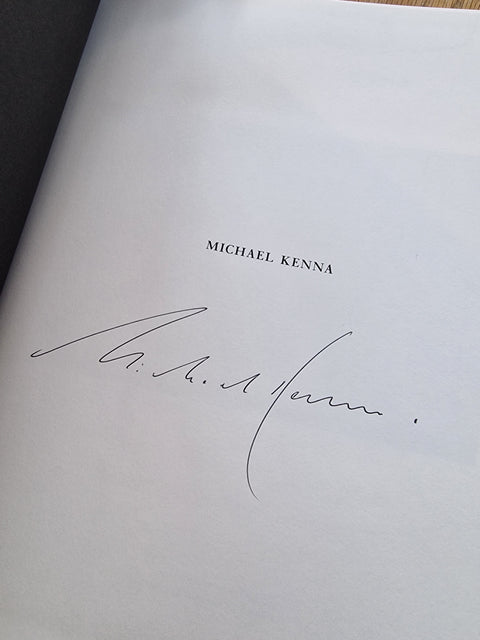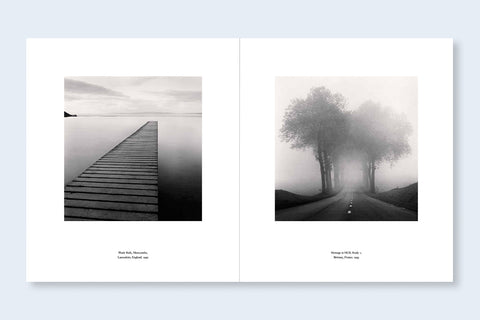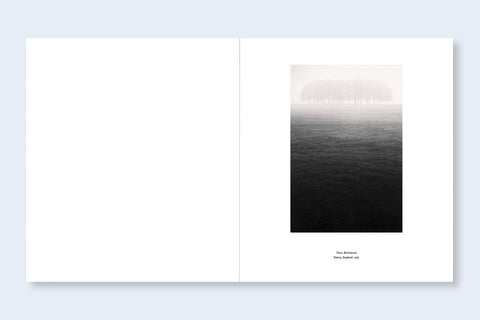




Photographs and Stories
2023
ISBN: 978-1-59005-593-9
Hardcover, 11.5 x 13, 106 pages, 51 duotone plates.
In celebration of Michael Kenna’s fiftieth year as a photographer, we are thrilled to announce the publication of Michael Kenna: Photographs and Stories. This gorgeous new monograph, beautifully printed on Japanese Kasadaka paper and bound in custom deep blue cloth, is limited to 2,000 casebound copies. It is published in association with the Center for Photographic Art to coincide with a traveling exhibition opening at their historic Carmel, California exhibition space in November 2023.
Kenna has selected one image for each year beginning 1973, when he enrolled in the Banbury School of Art, and for each subsequent year. Following the “Photographs” section is “Stories,” in which Kenna gives context to each image and considers how it connected to his own life at the time.
Michael Kenna is arguably the most influential landscape photographer of his generation. Often working at dawn or during the night, he has concentrated primarily on the interaction between the ephemeral atmospheric conditions of the natural landscape, and human-made structures and sculptural mass. Over ninety books and catalogs have been published on his work. His exquisite, hand crafted, silver gelatin prints have been exhibited throughout the world and are included in such permanent museum collections as The National Gallery, Washington, D.C.; The Shanghai Art Museum, Shanghai; and The Victoria and Albert Museum, London. In 2022, Mr. Kenna was made an Officer in the Order of Arts and Letters by the French Ministry of Culture.
“This book is a journey, navigating places foreign and familiar, winding through black and white scenes full of spacious calm. It is a great pleasure to look at these images, to feel that maybe everything is going to be all right after all, that the world isn’t such a bad place, and magic still exists. There is a reassuring quality to these photographs, and I, for one, am grateful for Michael Kenna’s half century of watching the light and recording his vision.”— From the Introduction by Ann Jastrab
